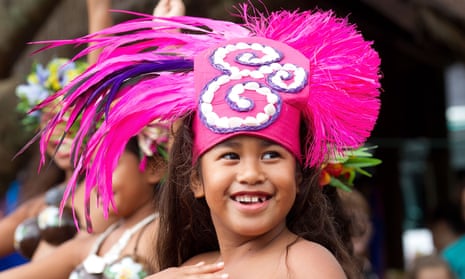Fifty-four years after independence, the Cook Islands, is considering a name change. Named after Captain Cook, the Pacific islands, located between New Zealand and Hawaii, comprise 15 Polynesian islands, each with their own pre-colonial names and histories and complicated dynamics in the present. They are not the colonial fantasies of remote island adventures or tropical sexualities, and more than tourist destinations.
If you thought decolonisation in the Pacific was a mid-20th-century moment that ended with political independence, you would be wrong. Decolonisation is a continuing undoing of the legacies of colonialism. It involves re-examining names and categories, but it is not always about going back to the past to claim some authentic identity. Hence, Danny Mataroa, chair of the Cook Islands name change committee, has suggested a name that encompasses Christian faith (which arrived after colonialism) and Māori heritage (which predates colonialism).
But what does decolonisation have to do with place names? Place names are the meeting points of history and geography that shape part of our identities. Under colonialism, Eurocentric naming practices were commonplace. For example, New Zealand – the country to which the Cook Islands chose to be in association with after independence in 1965 – was named after a province in the Netherlands. Halfway around the world, Dutch settlers in South America also named a fort and a town New Zealand in 17th-century Dutch Guiana.
One might say European colonisers lacked imagination, as everywhere they went they saw a reflection of themselves. They imposed their own geographies on to “new” (to them) places, making them knowable – though only in relation to Europe.
It makes perfect sense then that the Polynesian citizens of the Cook Islands would see the current name as a rupture of their own indigenous geographies, a colonially inherited map that erases the long and remarkable history of Polynesian ocean navigation in favour of the name of a single British explorer.
Some might argue that to rename a place is to destroy history at the stroke of a pen. This is the argument of some who oppose the renaming of streets named after wealthy slave-owners in Glasgow. The slow response to calls to remove the N-word from place names in Quebec (which was only green-lit by the province’s toponymy commission following a petition in 2015) suggests a similar sentiment. I’m still waiting for Newfoundland to consider a change.
Renaming can also restore history and give back a sense of place and culture. For instance, in India, the city of Calcutta (an anglicised name) returned in 2001 to the Bengali pronunciation of Kolkata; following anti-colonial wars, French Indochina became Vietnam, Laos and Cambodia; South West Africa became Namibia, and Zimbabwe replaced Rhodesia. In the Pacific, New Hebrides (named by Captain Cook) adopted the Melanesian name Vanuatu at independence.
Although the Cook Islands held a referendum in 1994, when voters rejected a name change, the yearning for a decolonised identity has not disappeared. For island communities, a sharp exit from colonial associations and the intricate web of capitalism is not always possible; globalisation and social media connects us more than separates us.
Independence does not need to be a grandiose process of disconnection and severing ties. A new place name for the Cook Islands (such Avaiki Nui, a local term and a frequently suggested new name) offers the possibility to reclaim ancestral legacies and envision new futures – futures that do not belong to the limited choices laid out by colonialism that foreclose true independence, but a more hopeful map for the next generation that opens up the spirit of liberation.
